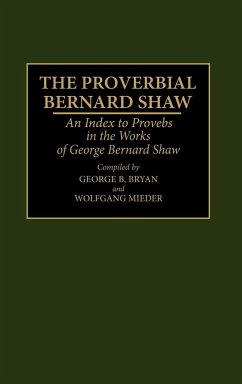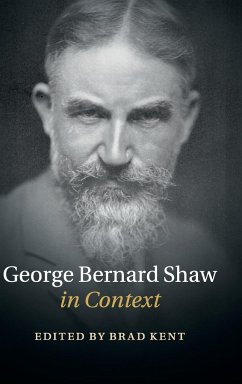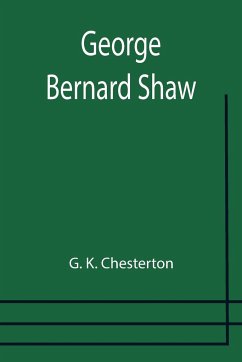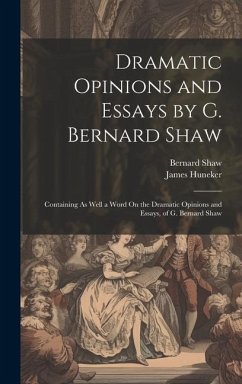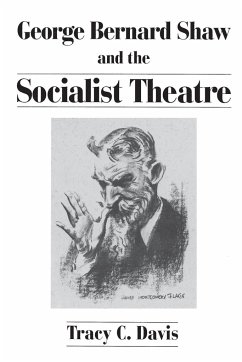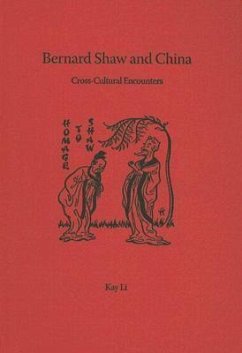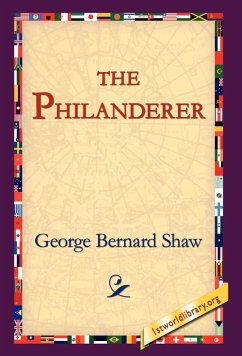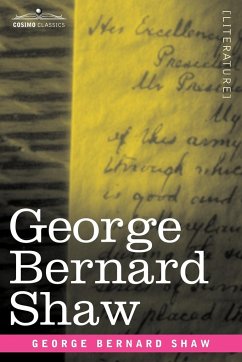
George Bernard Shaw
Versandkostenfrei!
Versandfertig in 1-2 Wochen
16,99 €
inkl. MwSt.

PAYBACK Punkte
8 °P sammeln!
British writer GILBERT KEITH CHESTERTON (1874-1936) expounded prolifically about his wide-ranging philosophies-he is impossible to categorize as "liberal" or "conservative," for instance-across a wide variety of avenues: he was an arts critic, historian, playwright, novelist, columnist, and poet. His witty, humorous style earned him the title of the "prince of paradox," and his works-80 books and nearly 4,000 essays-remain among the most beloved in the English language. Chesterton clashed vociferously and frequently with George Bernhard Shaw, his greatest intellectual "enemy," once calling the...
British writer GILBERT KEITH CHESTERTON (1874-1936) expounded prolifically about his wide-ranging philosophies-he is impossible to categorize as "liberal" or "conservative," for instance-across a wide variety of avenues: he was an arts critic, historian, playwright, novelist, columnist, and poet. His witty, humorous style earned him the title of the "prince of paradox," and his works-80 books and nearly 4,000 essays-remain among the most beloved in the English language. Chesterton clashed vociferously and frequently with George Bernhard Shaw, his greatest intellectual "enemy," once calling the Irish playwright "most savagely serious man of his time." This 1909 critique of Shaw's work and attitudes is considered one of the best works of cultural criticism ever written, and certainly the best book on Shaw. Exploring the writer's work through the perspectives of his various personas-the Irishman, the Puritan, the Progressive, the Critic, the Dramatist, and the Philosopher-Chesterton, with brutal grace and devastating humor, shreds Shaw's grimness and illiberalism. This is essential reading for those seeking the best English literature has to offer.





